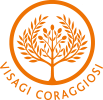Mediterranean diet: characteristics and health benefits
The Mediterranean Diet is not just a diet, but an authentic lifestyle that has its roots in the ancient cultures that bordered the Mediterranean Sea, particularly in countries such as Italy, Greece, Spain and Turkey. Besides being tasty and varied, it has been recognised as one of the healthiest dietary patterns in the world. In this article, we will explore the foundations, benefits and main components of this diet.
Fundamental characteristics of the Mediterranean diet
The Mediterranean Diet is a mosaic of flavours, traditions and eating habits that originated in the regions bordering the Mediterranean Sea. This eating style, now a UNESCO World Heritage Site, skilfully combines ingredients, cooking techniques and seasonal rhythms in a perfect balance of taste and health. Let us take a detailed look at the salient characteristics that define it.
1. Fresh, seasonal foods
- Seasonality: priority is given to foods grown and harvested in their natural season. This not only ensures better taste, but also optimal nutritional content.
- Locality: The diet promotes the consumption of local products, reducing environmental impact and supporting local economies.
- Variety: A wide range of vegetables, fruits, cereals and pulses are consumed regularly, ensuring a wide variety of nutrients.
2. Good fats
- Extra virgin olive oil: This oil, extracted from the first pressing of olives, is rich in antioxidants and monounsaturated fats. It is the main source of fat in the Mediterranean diet, used both for cooking and raw as a condiment.
- Nuts: Walnuts, almonds, pistachios and others are rich in essential fatty acids and protein. They are consumed in moderation due to their high calorie content.
3. Lean proteins
- Fish predominance: Fish, especially blue fish such as sardines, anchovies and mackerel, is a main source of protein. Rich in Omega-3, it is recommended at least 2-3 times a week.
- Pulses: Beans, chickpeas, lentils and other pulses are essential, often used as a base for soups and stews or as a side dish.
- White meat: Chicken and turkey are preferred over red meat, and are cooked in simple ways, such as grilled or baked.
4. Dairy products in moderate quantities
- Cheese: Many Mediterranean countries boast a wide variety of cheeses, from fresh ones such as mozzarella or feta to mature ones such as parmesan. Although delicious, they are consumed in moderation.
- Yoghurt: Rich in probiotics and calcium, yoghurt is often eaten for breakfast or as a base for sauces and dressings.
5. Wine in moderation
Red wine, rich in antioxidants such as resveratrol, is often consumed with meals, but always in moderation. It is a pleasure to enjoy, not a necessity, and it is always important to drink responsibly.
Health benefits
Numerous studies have shown that following the Mediterranean Diet can have several benefits, including:
- Reduced risk of cardiovascular disease: Thanks to the high content of antioxidants and monounsaturated fats.
- Weight control: A diet rich in fibre and a balanced calorie intake helps maintain a healthy weight.
- Diabetes prevention: The Mediterranean Diet can help stabilise blood sugar levels.
- Brain health: Certain components, such as Omega-3 fatty acids found in fish, are associated with a reduced risk of neurodegenerative diseases.
Pillars of the Mediterranean Diet
1. Extra virgin olive oil
It is not just a source of fat but an essential foodstuff. Rich in antioxidants and monounsaturated fats, it is essential for flavouring foods and preparing seasonings.
2. Whole grains
Bread, pasta, rice and couscous are the basis of every meal, providing energy and fibre.
3. Vegetables and fruit
They are the main source of vitamins, minerals and fibre. The ideal is to consume at least 5 portions per day.
4. Fish and pulses
Fish, rich in Omega-3, should be consumed at least twice a week. Legumes, such as lentils and chickpeas, are an essential source of vegetable protein.
5. Meat in moderate quantities
Red meat should be consumed in moderation, preferring chicken or turkey.
6. Dried fruits and seeds
Walnuts, almonds, sesame seeds and pine nuts are rich in good fats and protein.
7. Herbs and spices
Basil, oregano, rosemary and other herbs are essential for flavouring dishes without using too much salt.
Conclusion
The Mediterranean Diet is not just a set of dietary guidelines, but a real invitation to enjoy the pleasures of the table, conviviality and the products that the earth offers, following a natural and seasonal rhythm. This lifestyle, enriched by physical activity and a passion for good food, is an authentic elixir for a long and healthy life.

